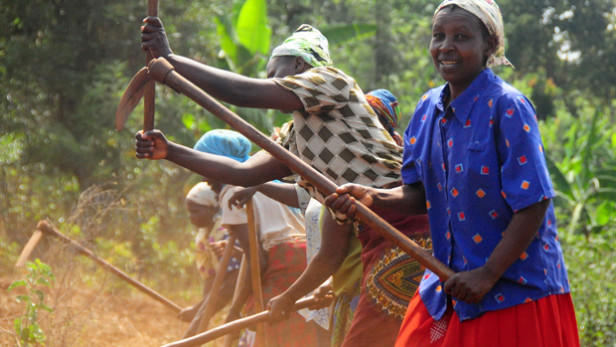Why scientists must become advocates for change

In her latest blog, M. Ann Tutwiler talks why she highlighted the need for scientists to adapt to a changing climate during a recent interview for DEVEX.
I recently participated in a panel debate on closing the gender gap in farming under climate change. The panel debate was part of a high-level event organized by the CGIAR Research Program on Agriculture, Climate Change and Food Security (CCAFS).
During this special meeting, which brought together thinkers and doers in a forum to inspire renewed action, I had the pleasure to sit down with Bill Hinchberger, journalist with Devex, to discuss the future direction of partnerships at Bioversity International.
What resulted was a very fruitful discussion on how these types of landscapes have changed for my organization, especially in the recognition that as old school funds dwindle, new partnerships are emerging. With purse strings tightening in relation to financial contributions from both governments and funding organizations, Bioversity International is finding innovative ways in dealing with global issues such as climate change, loss of biodiversity and environmental degradation – and doing so in a partnership environment which demands immediate and tangible results. It is vital to remember that development research must prove its worth on a wider policy stage.
Key to this shift is the scientists and researchers themselves adjusting their mindset. They are having to adapt beyond their traditional role - to further think about who is going to use their information outside of the research and academic community, and how they can demonstrate and communicate their research – and its impact - more effectively to a wide range of important stakeholders. In this way, the scientists themselves become the advocates for change.
Please read Bill Hinchberger's article 5 new rows to hoe in development research which lists the changes that I think research-for-development organizations are facing.
M. Ann Tutwiler
Email: [email protected]
Photo: Farmers working in Kenya. Credit: CGIAR/P. Casier
